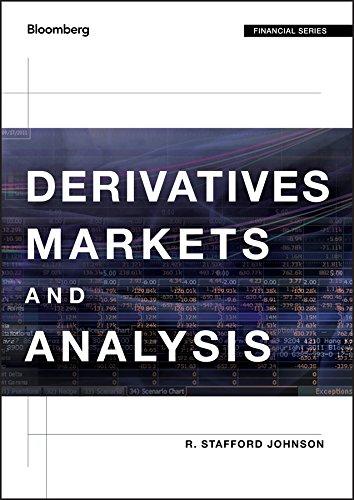Prove the following conditions using an arbitrage argument. In your proof, show the initial positive cash flow
Question:
Prove the following conditions using an arbitrage argument. In your proof, show the initial positive cash flow when the condition is violated and prove that there are no liabilities at expiration:
a. \(C_{t}^{\mathrm{a}} \geq \operatorname{Max}\left[S_{\mathrm{t}}-X, 0\right]\)
b. \(C_{t}^{\mathrm{e}} \geq \operatorname{Max}\left[S_{\mathrm{t}}-P V(X), 0\right]\)
c. \(P_{t}^{\mathrm{a}} \geq \operatorname{Max}\left[X-S_{\mathrm{t}}, 0\right]\)
d. \(P_{t}^{e} \geq \operatorname{Max}\left[P V(X)-S_{\mathrm{t}}, 0\right]\)
e. \(C_{t}^{\mathrm{e}}\left(X_{1}\right)>C_{t}^{\mathrm{e}}\left(X_{2}\right)\)
f. \(P_{t}^{\mathrm{e}}\left(X_{2}\right)>P_{t}^{\mathrm{e}}\left(X_{1}\right)\)
g. \(C_{t}^{\mathrm{e}}\left(X_{1}\right)-C_{t}^{\mathrm{e}}\left(X_{2}\right)
h. \(P_{t}^{\mathrm{e}}\left(X_{2}\right)-P_{t}^{\mathrm{e}}\left(X_{1}\right)
i. \(C_{t}^{\mathrm{a}}\left(\mathrm{T}_{2}\right)>C_{t}^{\mathrm{a}}\left(T_{1}\right)\)
j. \(P_{t}^{\mathrm{a}}\left(\mathrm{T}_{2}\right)>P_{t}^{\mathrm{a}}\left(T_{1}\right)\)
k. \(P_{t}^{e}+S_{\mathrm{t}}=P_{t}^{e}+P V(X)\)
l. \(C_{t}^{\mathrm{e}}\left(X_{1}\right)-C_{t}^{\mathrm{e}}\left(X_{2}\right)+P_{t}^{\mathrm{e}}\left(X_{2}\right)-P_{t}^{\mathrm{e}}\left(X_{1}\right)=P V\left(X_{2}-X_{1}\right)\)
Step by Step Answer:






